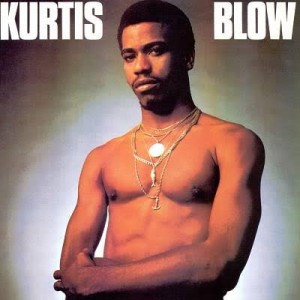
Seven iconic albums celebrate respective anniversaries today, and we'd be fools to discredit them any tribute. The list dates all the way back to Hip-hop's earliest years in 1980, climbing up until Ghostface Killah's eighth studio album in 2009, accounting the perfect retrospect playlist for today
Kurtis Blow (1980)
Debuting his self-titled album under Mercury Records, Harlem-based Kurtis Blow became the first rapper ever to achieve commercial successful. The album signified the first gold-certified Hip-hop album, and featured the critically-acclaimed track, "The Breaks", which also heralded the first rap song to attain RIAA gold.
Music to Drive By (1992)
Labeled under Orpheus Records, Compton's Most Wanted added another iconic record to the growing Gangsta rap repertoire. Straight out of Hip-hop's Golden Age, their third studio album centered around the gangs, life in the hood, as well as nihilism, and is considered today as a well-respected Gangsta rap classic.
The Love Movement (1998)
A Tribe Called Quest's fifth and final album, The Love Movement, with its smooth tracks and jazzy beats, orchestrated a nostalgic reprise of the group's bright ambience. The record peaked at #3 on both the US Billboard 200 and the Top R&B/Hip-Hop Albums, as well as #2 in Canada, and #38 in the UK. The New York Times upheld the record as a "conscious of black entertainment's past."
Vol. 2 Hard Knock Life (1998)
In the same year, West-coast icon Jay Z released what would be considered his "best-selling album as acclaimed in 2013", debuting at #1 off the Billboard 200, as well as claiming 5-time Platinum from the RIAA in 2000. Critiqued as a significant progression in Hip-hop aesthetics, as well as "the epitome of mainstream Hip-hop" in its context, the record ranked #46 onRolling Stone's 100 Greatest Albums of the 90s.
Aquemini (1998)
A clever portmanteau of Big Boi's Zodiac Aquarius and Andre 3000's Gemini, their third record both conveyed their recurring theme of polar personalities, as well as expanding on their outer-space backdrop from previous albums. The album reached RIAA platinum just two months after its debut, as well as accomplishing double platinum in the following year, and gathering critical acclaim from numerous audiences as a "stroke of brilliance", and "a virtuosic masterpiece, and a landmark hip-hop album of the late 90's."
Black Star (1998)
Mos Def and Talib Kwele are Black Star, releasing their only studio album that year, which showcased their conscious Hip-hop style through songs touching on intriguing philosophical ideals, mainstream controversies, as well as New York life from their perspective. With its distinguished, hard-hitting rhythms, the album came to be known as "a highly intelligent and searching examination of black culture, harking back to the classic era of rap epitomized by Public Enemy and KRS-One."
Ghostdini: Wizard of Poetry in Emerald City (2009)
Wu-Tang Clan's Ghostface Killah released his eight studio album, signifying the transition into a more slow-R&B vibe. A veteran artist in Hip-hop, the album gathered a large amount of critical-acclaim, also being highlighted as "Ghostface's most idealistic album furthering its distinction against Ghost's previously renowned offerings". Several others applauded the Wu-Tang clansman's creative shift as a rare successful occurrence for its "risque approach to R&B" and "unique among efforts by rappers to reach into such territiry."
By Jods Arboleda for RAPStation.com

